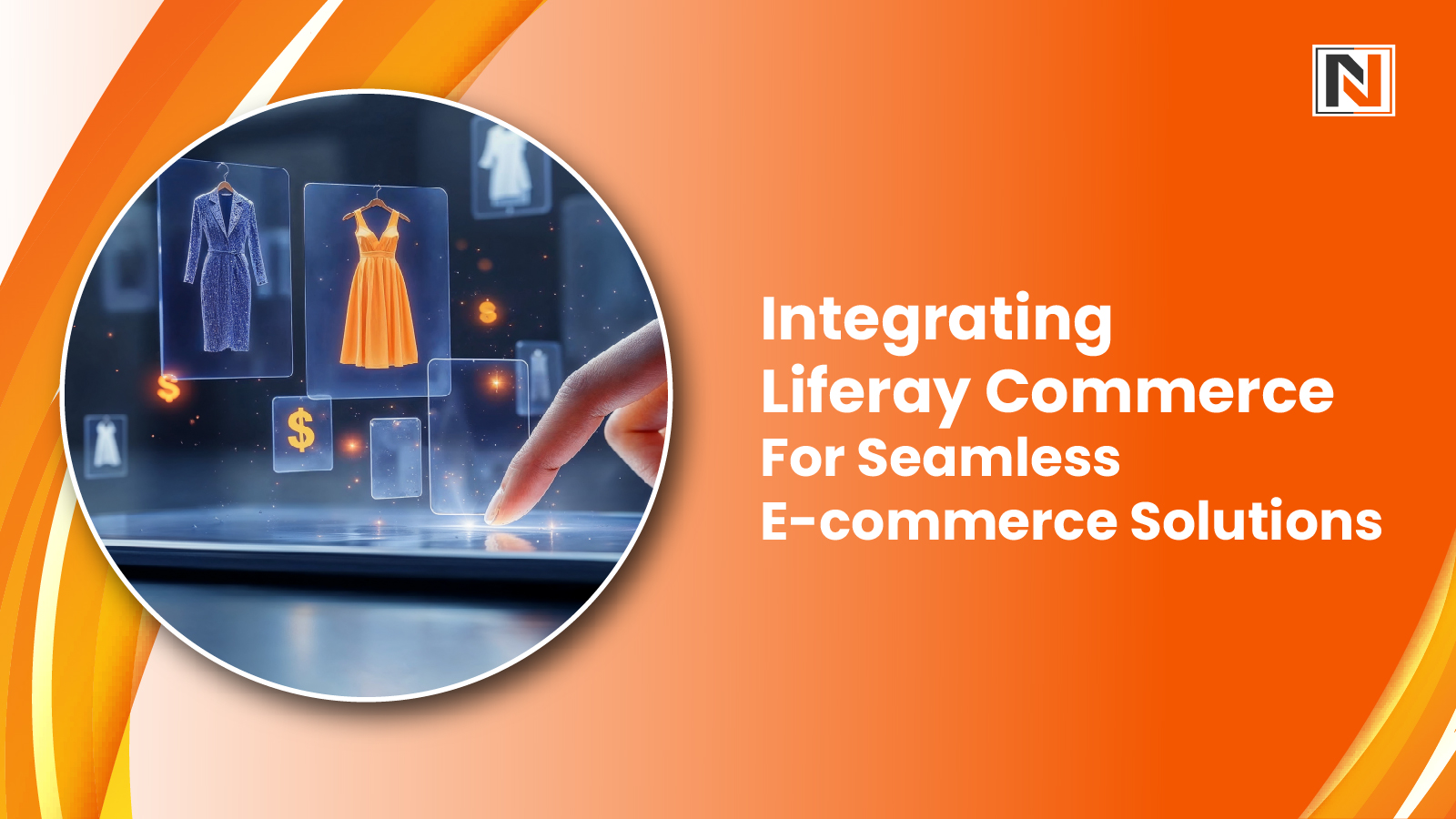
In 2025, businesses need more than just a transactional online store, they require a unified, scalable, and personalized e-commerce experience. Liferay Commerce, a powerful extension of Liferay DXP, empowers organizations to build seamless B2B and B2C e-commerce solutions that integrate effortlessly with content management, customer portals, and enterprise systems.
For decision-makers evaluating Liferay Commerce integration, this blog explores how it transforms digital commerce by unifying storefronts, personalizing buyer journeys, and streamlining complex B2B transactions all within a single, robust platform.
Why Liferay Commerce Stands Out in Digital Commerce
Traditional e-commerce platforms often operate in silos, forcing businesses to manage multiple systems for content, commerce, and customer data. Liferay Commerce eliminates these inefficiencies by embedding commerce capabilities directly into Liferay DXP, enabling:
- Unified Customer Experiences – Combine content, commerce, and community in a single portal.
- Flexible B2B & B2C Models – Support complex pricing, bulk orders, and approval workflows.
- Seamless Third-Party Integrations – Connect ERP, CRM, and payment gateways effortlessly.
- AI-Driven Personalization – Leverage data to tailor product recommendations and promotions.
Unlike standalone e-commerce solutions, Liferay e-commerce solutions are built for scalability, making them ideal for enterprises with evolving digital needs.
DID YOU KNOW?
According to Gartner, The global DXP market is projected to reach $5.9 billion by 2028.
Key Benefits of Liferay Commerce Integration
Liferay Commerce delivers unified commerce experiences, streamlined B2B workflows, and seamless integrations all within a single, scalable platform.

1. Unified Platform for Content and Commerce
Many businesses struggle with disjointed systems where product catalogs and marketing content reside in separate platforms. Liferay DXP Commerce bridges this gap by allowing marketers to create dynamic product pages, blogs, and promotions within the same environment, enhancing engagement and conversions.
2. Streamlined B2B E-Commerce Operations
Building seamless B2B e-commerce with Liferay Commerce simplifies complex processes such as:
- Custom Catalogs & Pricing – Offer role-based pricing and contract-specific product listings.
- Approval Workflows – Enable multi-tier purchasing approvals for large orders.
- Self-Service Portals – Let buyers reorder, track shipments, and manage accounts without sales rep intervention.
This reduces operational friction, accelerating sales cycles and improving buyer satisfaction.
3. Personalization at Scale
Modern buyers expect tailored experiences. Liferay Commerce leverages AI and machine learning to:
- Recommend products based on browsing history.
- Display dynamic pricing for logged-in users.
- Automate targeted promotions via segmented customer groups.
Such personalization drives higher average order values (AOV) and customer retention.
4. Future-Proof Architecture
With headless and API-first capabilities, Liferay Commerce integration allows businesses to:
- Deploy omnichannel experiences (web, mobile, IoT, voice commerce).
- Adapt to emerging trends like social commerce and marketplaces.
- Scale effortlessly as transaction volumes grow.
This flexibility ensures long-term viability in a rapidly evolving digital landscape.
Real-World Use Cases of Liferay Commerce
From manufacturing giants to healthcare providers, businesses across industries are leveraging Liferay Commerce, let’s explore:
1. Manufacturing & Distribution
A global industrial supplier used Liferay e-commerce solutions to consolidate multiple regional stores into a single portal. The result?
- 40% faster order processing with automated workflows.
- 30% increase in upsells via AI-driven cross-selling.
2. Financial Services & Subscription Models
A fintech firm integrated Liferay DXP Commerce to offer subscription-based financial tools. Benefits included:
- Seamless recurring billing with integrated payment gateways.
- Custom dashboards for users to manage subscriptions.
3. Healthcare & Pharma Procurement
A pharmaceutical distributor streamlined B2B e-commerce with Liferay Commerce, enabling:
- Role-based access control for compliance.
- Bulk ordering for hospitals and clinics.
These examples highlight how Liferay Commerce adapts to diverse industry needs.
Best Practices for Implementing Liferay Commerce
To maximize ROI from Liferay Commerce integration, follow these best practices:
1. Align Commerce Strategy with Business Goals
- Identify key pain points (e.g., slow order approvals, fragmented user experiences).
- Define KPIs (conversion rates, average order value, customer retention).
2. Leverage Liferay’s Out-of-the-Box Features
- Use Liferay DXP Commerce widgets for quick storefront setup.
- Implement built-in SEO tools for better product discoverability.
3. Optimize for Mobile & Omnichannel
- Ensure responsive design for mobile shoppers.
- Integrate with POS systems for unified inventory management.
4. Continuously Test & Optimize
- A/B test product pages and checkout flows.
- Use analytics to refine personalization rules.
Conclusion
Liferay Commerce is a strategic differentiator that unifies digital experiences, simplifies B2B complexities, and future-proofs your business.
For enterprises looking to move beyond transactional storefronts and embrace seamless e-commerce solutions, Liferay Commerce integration offers the agility, scalability, and innovation needed to stay ahead.
Are you ready to transform your digital commerce strategy? Liferay DXP Commerce could be the game-changer your business needs.
Frequently Asked Questions
What is Liferay Commerce?
Liferay Commerce is an integrated e-commerce solution built on Liferay DXP, enabling businesses to unify content, customer portals, and B2B/B2C commerce in a single platform.
How does Liferay Commerce support B2B e-commerce?
It offers custom catalogs, tiered pricing, approval workflows, and self-service portals, streamlining complex B2B transactions.
Can Liferay Commerce integrate with existing ERP/CRM systems?
Yes, its API-first architecture allows seamless integration with ERP (SAP, Oracle), CRM (Salesforce), and payment gateways.
Is Liferay Commerce suitable for omnichannel selling?
Absolutely. Its headless commerce capabilities support web, mobile, IoT, and marketplace integrations for a unified experience.
How does Liferay Commerce improve customer experience?
Through AI-driven personalization, dynamic pricing, and unified portals, it delivers tailored shopping journeys for higher engagement.
